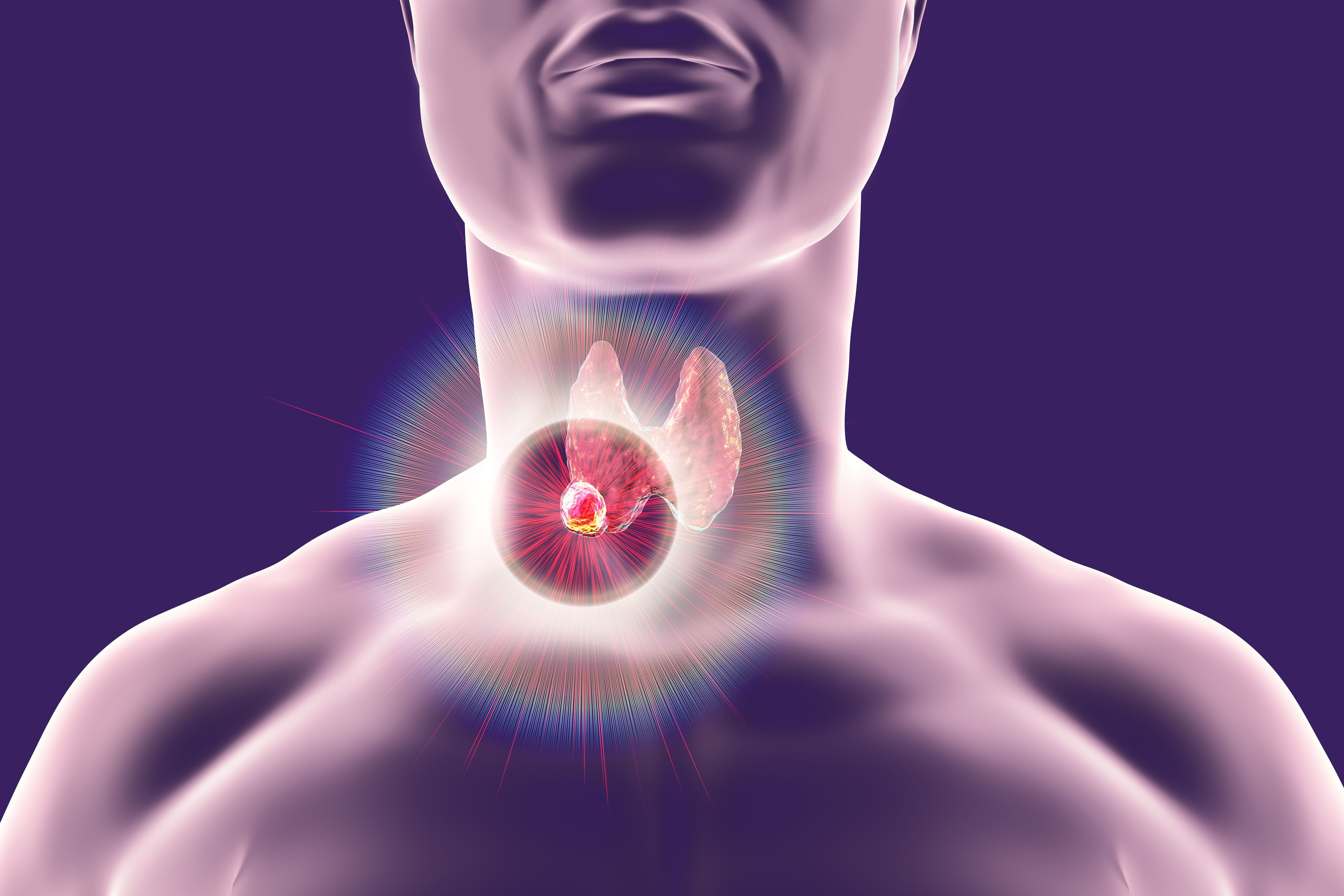Higher BMI May Induce More Aggressive Disease, Worse Clinical Outcomes in Differentiated Thyroid Carcinoma
Investigators found that higher body mass index is associated with more aggressive differentiated thyroid carcinoma tumors, as well as an increased risk for worse clinical outcomes, with patients with a BMI above 28.4 being at a higher risk.

Higher body mass index (BMI) may be associated with more aggressive differentiated thyroid carcinoma (DTC) tumors and an increased risk for worse clinical outcomes, according to a poster presented at the 91st Annual Meeting of the American Thyroid Association.
“We believe that these results indicate that we [should] evaluate patients’ BMI when treating DTC for better clinical outcomes,” Anderson Simões, medical student, Irmandade da Santa Casa de Misericórdia de São Paulo, Brazil, said in a presentation of the poster at the meeting.
The investigators aimed to evaluate the impact of BMI on initial staging and on response to proposed treatment by analyzing medical records from 217 patients aged 18 years or older with a previous diagnosis of DTC followed up for at least 5 years.
Investigators evaluated BMI, age, gender, initial staging, and response to the proposed treatment in the study (good response [complete and indeterminate] and incomplete response).
In the study, 149 patients experienced a good response, and 68 patients had an incomplete response.
When evaluated by stage, good and incomplete responses in stage I were 22.2% and 77.8%, respectively, 31.3% and 68.8% in stage II, 58.6% and 41.1% in stage III, and 84.6% and 15.4% in stage IV.
When evaluated by risk of recurrence, very-low risk was seen in 0% and 100% of those with good and incomplete responses, respectively, low risk was seen in 13.6% and 86.4%, intermediate risk was seen in 31.9% and 68.1%, and high risk was seen in 79.5% and 20.5%. “We have observed a correlation between BMI variable and the patients’ outcome, and that correlation was typically significant (P < .001),” Simões said. “In addition, the quantitative variables of BMI proved to be a non-parametric variable observed by the Mann-Whitney test (P < .001).”
Of note, investigators observed no significant association between age (P = .287) and sex (P = .169) with patients’ outcomes. “But there was evidence with specificity and sensitivity of the relationship between BMI and incomplete response,” Simões said, adding that the overlapping size of the ROC curve area in which the BMI cutoff found was 28.4.
“This research has shown that higher BMI is associated with more aggressive tumors as well as an increased risk for worse clinical outcomes with patients, with a BMI above 28.4 being at a higher risk,” Simões concluded.
Reference:
Simões AR, Ferraz C, Padovani RP, Salles EDN. The relation between high body mass index (BMI) and tumor aggressiveness in patients with differentiated thyroid carcinoma (DTC). Thyroid. 2022;32(1): A-136-A-174. doi:10.1089/thy.2022.29140.lb.abstracts.
Anticipating Novel Options for the RAI-Refractory DTC Armamentarium
May 15th 2023In season 4, episode 6 of Targeted Talks, Warren Swegal, MD, takes a multidisciplinary look at the RAI-refractory differentiated thyroid cancer treatment landscape, including the research behind 2 promising systemic therapy options.
Listen











